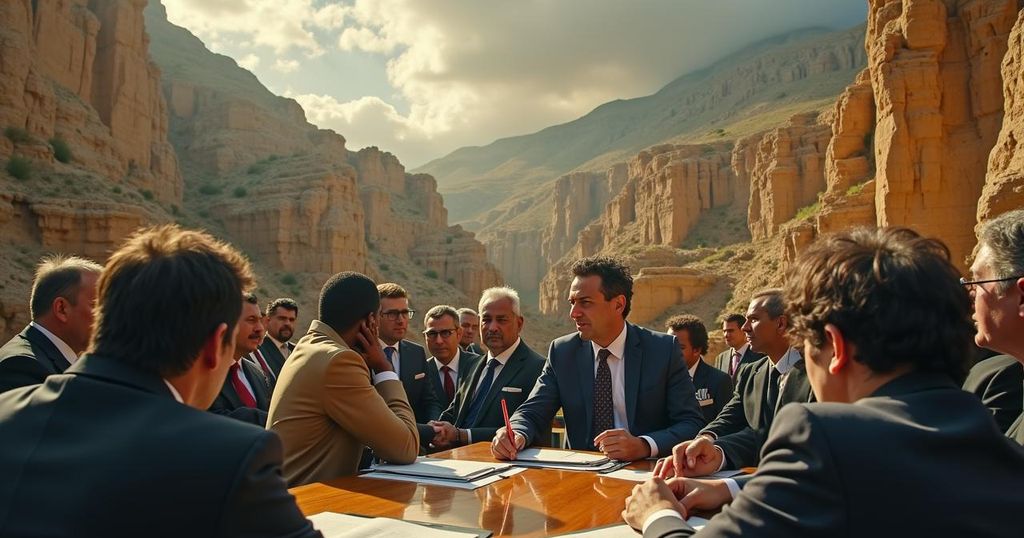Bolivia has aligned with South Africa to file a genocide case against Israel at the International Court of Justice amid ongoing conflicts in Gaza. This action is part of a broader initiative involving multiple countries accusing Israel of violations of the Genocide Convention. Since the war’s escalation, reports indicate significant casualties, highlighting the need for urgent international intervention.
In light of the ongoing conflict between Israel and Gaza, Bolivia has allied with South Africa to file a genocide case against Israel at the International Court of Justice (ICJ). This alliance comes shortly after the commemoration of the one-year anniversary of the Hamas attack and the subsequent assaults in Palestinian territories, specifically in the Gaza Strip and the West Bank. On October 9, 2023, Bolivia lodged its appeal with the ICJ, accusing Israel of conducting “perpetrating genocidal acts” in Gaza and asserting that Israel has violated the Genocide Convention of 1948. It further contended that the situation in Gaza necessitated international intervention to “condemn the crime of genocide.” Bolivia’s official position is that it feels a moral obligation to address the ongoing acts of violence as a form of genocide. In conjunction with Bolivia, additional nations such as Colombia, Libya, Spain, Mexico, Nicaragua, and Turkey have also expressed their intent to support the case, citing similar accusations against Israel for its actions in Gaza. The ICJ has now recorded 14 countries, including Nicaragua and Egypt, that have either indicated interest or formally joined the proceedings against Israel. The case against Israel was initially filed by South Africa on December 29, 2023, where it alleged violations of the 1948 Genocide Convention due to Israel’s military actions in Palestinian territories. Specifically, South Africa accused Israel of obstructing humanitarian aid and employing famine as a tactic in warfare. The ICJ heard these allegations on January 10 and 11, 2024, during which Israel defended its military operations as a right to self-defense and denied the accusations made by South Africa. Despite the Court’s calls for Israel to mitigate its military offensives and report progress on reducing civilian harm, the severity of attacks has escalated, leading to a staggering death toll of approximately 42,000 Palestinians since October 7, 2023. Moreover, the conflict has expanded into Lebanon, exacerbating concerns regarding the potential for a broader regional war.
The conflict between Israel and Gaza has a long and tumultuous history, with the latest outbreak significantly impacting both Palestinians and the international diplomatic landscape. Moments of violence have typically incited reactions within the global community, often aggravating existing geopolitical tensions. The narrative of genocide and severe human rights violations has been prominent among various nations and human rights organizations regarding Israel’s military actions against Gaza. In response, several countries and international bodies have sought legal avenues to address alleged breaches of international law, including the Genocide Convention of 1948, which aims to prevent and punish acts of genocide. The collaboration between Bolivia and South Africa represents a significant escalation in international legal efforts to hold Israel accountable for its actions in Gaza.
The coalition formed by Bolivia and South Africa against Israel at the ICJ highlights a significant surge in international legal challenges concerning reported human rights violations amid ongoing hostilities in Gaza. The assertions of genocide and the participation of other countries underscore a growing global concern regarding the humanitarian crisis in the region. Despite the ICJ’s interventions and recommendations, including calls for Israel to scale back military operations, the situation remains dire, necessitating immediate and robust international attention.
Original Source: www.outlookindia.com







